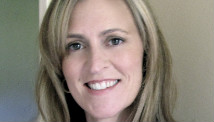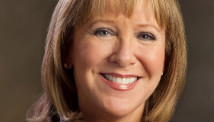STORY HIGHLIGHTS
- U.S. declared a key opposition group in Syria a terrorist organization
- New report says it is the most effective group in the opposition, with 5,000 fighters
- Nada Bakos: The group has ties to al Qaeda but also seeks to provide social services
- She says the chances are slim that it could be persuaded to give up radical goals
Editor's note: Nada Bakos is a former Central Intelligence Agency analyst.
(CNN) -- In the midst of the struggle against Bashar al-Assad's government stands Jabhat al-Nusra, recently designated by the U.S. State Department as a foreign terrorist organization.
A new report by the Quilliam Foundation in London says the organization is the most effective arm of the Syrian insurgency and now fields about 5,000 fighters against the Assad regime.
Practically speaking, the terrorist designation means little that is new for the immediate struggle in Syria. Shortly after al-Nusra claimed credit for one of its early suicide bombings in January 2012, the Obama administration made known al-Nusra's connection to al Qaeda in Iraq, a group with which I was intimately familiar in my capacity as an analyst and targeting officer at the Central Intelligence Agency.

Nada Bakos
The administration's position was reinforced when Director of National Intelligence James Clapper one month later testified in front of the Senate Armed Services Committee that "...we believe al-Qaeda in Iraq is extending its reach into Syria."
Analysis: Study shows rise of al Qaeda affiliate in Syria
Al-Nusra is filling a power vacuum through charitable efforts to galvanize local support and generating influence among Syrians. In light of al-Nusra's influence in Syria, the real question is not so much about the scope and scale of al-Nusra currently, but rather how should the United States respond to its rise, particularly after al-Assad's eventual exit?
Historically, the U.S. government seemed to believe that as soon as people are given the chance, they will choose and then create a Jeffersonian democracy. Then we are surprised, if not outraged, that people turn to organizations such as Hamas, Hezbollah or the Muslim Brotherhood in electoral contests. These organizations often provide the basic necessities that people need to survive: food, water, medical care, education and security.
As ideologically distasteful as we might find them, they are often doing things corrupt, weak or failing governments do not: providing the basic necessities that people need to survive (let alone create the conditions that enable people to aspire to thrive).
Why does al-Nusra keep quiet about its ties to al Qaeda in Iraq? The documents pulled from the Abottabad raid that killed Osama bin Laden shed light on his awareness that the al Qaeda brand had been deteriorating.
Bin Laden urged regional groups, "If asked, it would be better to say there is a relationship with al Qaeda, which is simply a brotherly Islamic connection, and nothing more," according to CNN. Bin Laden and Ayman al-Zawahiri had criticized the Jordanian-born founder and leader of al Qaeda in Iraq, Abu Musab al-Zarqawi, for his killing of civilians and lack of political acumen to win public support.
Talk about al Qaeda seems distant. It was a bogeyman made real in 1993 when it unsuccessfully attacked the World Trade Center and terrifyingly tangible in 2001 when its operatives succeeded in destroying the twin towers and expanded their attacks to the Pentagon and the air over Pennsylvania. Its looming shadow has since faded from the public eye, particularly with the death of bin Laden. Its vision and ideology, however, continue to have a strong appeal.
Now that al Qaeda central has a less visible role, what makes players like al-Nusra and al Qaeda in Iraq threats? Even today, after Zarqawi's death, al Qaeda in Iraq has managed to continue to wreak havoc in Iraq and in the region through an autonomous, adaptable structure.
Al-Nusra has declared itself a player in the fight for a global jihad, a bold statement for what is today a localized group . Even small groups, however, have the potential to disrupt regional stability and complicate America's pursuit of its national security objectives—a fact I learned firsthand tracking and trying to stem the rise, influence and efficacy of al Qaeda in Iraq in the aftermath of the U.S. invasion of Iraq.
Zarqawi, until his death in 2006, was able to confound U.S. forces and attack Jordan by attracting recruits from North Africa (including Libya), Central Europe, Jordan and Syria.
Some of Zarqawi's earliest recruits were veterans of the Syrian Muslim Brotherhood, an organization that lashed out against the Syrian government during the 1980s. Captured records from a raid near the city of Sinjar, Iraq, indicated that during the 2006-2007 time frame, 8% of al Qaeda in Iraq operatives were Syrians. The percentage likely ebbed and flowed as the group formed, became influential and waned, but it suggests that there was no shortage of recruits amenable to engage in religious conflict in Syria as recently as 5-10 years ago.
The most striking thing about the captured records, however, is that it appears almost every foreign fighter entering Iraq to join al Qaeda in Iraq came through Syria. As a targeter, I can tell you that facilitation networks are key: they are the means by which groups such as al Qaeda in Iraq are funded, supplied and sustained. During the Iraq war, Zarqawi's top aides in Syria played a critical role in recruiting, funding and operational planning outside Iraq.
One of the things U.S. officials and the international media should watch for is how al-Nusra uses its terrorist designation: If it seeks to use the declaration to burnish its jihadist credentials, it might be able to bolster the image of the organization in the eyes of the extremist community and parlay that recognition into larger, or steadier, streams of funding—a development that will make the group more viable over the long-term or allow it to expand its operations or influence in the short- to mid-term.
An important differentiator between al Qaeda in Iraq and al-Nusra is one of its tactics: Zarqawi made a practice of indiscriminately killing Iraqi civilians, effectively terrorizing the Iraqi population, especially the Shiite minority. Zarqawi, despite identifying with al Qaeda, had a much thinner theological basis than al Qaeda central.
Key figures at al Qaeda central such as bin Laden and Zawahiri argued with Zarqawi over his tactics, complaining that alienating mainstream Muslims would not help achieve the over-arching goal of instilling Sharia law.
Al-Nusra is using some of the same tactics as al Qaeda in Iraq (e.g., suicide bombings, kidnappings and car bombs), but it appears to be trying to strike a balance Zarqawi was unwilling to make: Not only does it seem to be avoiding alienating—if not antagonizing—the larger population, but it also is providing the people of Syria with a range of goods and services such as food, water and medical care—basic necessities that people need to survive in the best of times, let alone when their country is in the throes of a civil war.
If this becomes a trend, it might signal that al-Nusra aspires to be more like Hezbollah or Hamas, organizations that defy neat categorization based on the range of social, political and military activities they engage in and the resultant legitimacy they have in the eyes of their constituencies.
In the Syrian uprising, the opportunity for meaningful U.S. intervention might have passed: Exhaustion from operations in Iraq and Afghanistan have taken their toll on the U.S. military, have taxed the national treasury, and sapped political will, especially as the state of the economy remains at the center of the debate in Washington.
Our absence from the fight is going to cost us if the al-Assad regime fails, leaving rebel groups like al-Nusra dictating the direction, pace and scope of a new Syria.
Given that managing affairs in the Middle East has never been one of our strong suits, the question at this point should be how can the United States, particularly the Department of State, best engage groups that might be inimical to U.S. values but necessary to our interests in the Middle East? For that, I am not sure there is a clear or simple answer.
One opportunity would be if the United States uses its designation of al-Nusra as both a stick and carrot, cajoling and encouraging it to enter into mainstream politics when (or if) the Assad regime falls.
My read of al-Nusra, however, is that, like Zarqawi, it does not aspire to be a political player and is unlikely to settle for a political role in the new government. Instead, it may aim to play the spoiler for any transitional government and use its resources and political violence to empower and encourage other like-minded extremists. With time and opportunity, al-Nusra could not only add to regional instability in the Middle East, but also rekindle global jihad.
Follow @CNNOpinion on Twitter
Join us at Facebook/CNNOpinion
The opinions expressed in this commentary are solely those of Nada Bakos.












